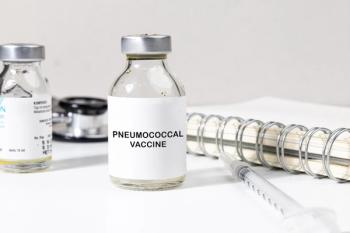
Mepolizumab effective in treating eosinophilic asthma
Mepolizumab significantly reduces asthma exacerbations in patients with severe eosinophilic asthma, according to a study published in a recent issue of The Lancet.
Mepolizumab significantly reduces asthma exacerbations in patients with severe eosinophilic asthma, according to a
As part of the Dose Ranging Efficacy and Safety with Mepolizumab (DREAM) trial, Ian D Pavord, DM, with Spire Leicester Hospital in the United Kingdom, and colleagues, conducted the study at 81 centers in 13 countries between 2009 and 2011. Patients who had a history of recurrent severe asthma exacerbations and had signs of eosinophilic inflammation were randomly assigned to receive 1 of 3 doses of intravenous mepolizumab or matched placebo; 621 patients were randomized (159 were assigned to placebo, 154 to 75-mg mepolizumab, 152 to 250-mg mepolizumab, and 156 to 750-mg mepolizumab).
The rate in reduction of clinically significant exacerbations was 48% for the group receiving the 75-mg dose, 39% in the group receiving a 250-mg dose, and 52% in the group receiving the 750-mg dose.
"Mepolizumab is an effective and well-tolerated treatment that reduces the risk of asthma exacerbations in patients with severe eosinophilic asthma," the researchers wrote. "Additionally, treatment lowers blood and sputum eosinophil counts and was well tolerated for 12 months," they added.
As the largest trial of severe asthma, the DREAM study results are important and suggest that "neutralizing interleukin 5 addresses a major unmet medical need in a population with substantial morbidity and healthcare costs," according to the researchers.
Check us out!
"Like" Drug Topics on
Follow us on
Newsletter
Pharmacy practice is always changing. Stay ahead of the curve with the Drug Topics newsletter and get the latest drug information, industry trends, and patient care tips.























